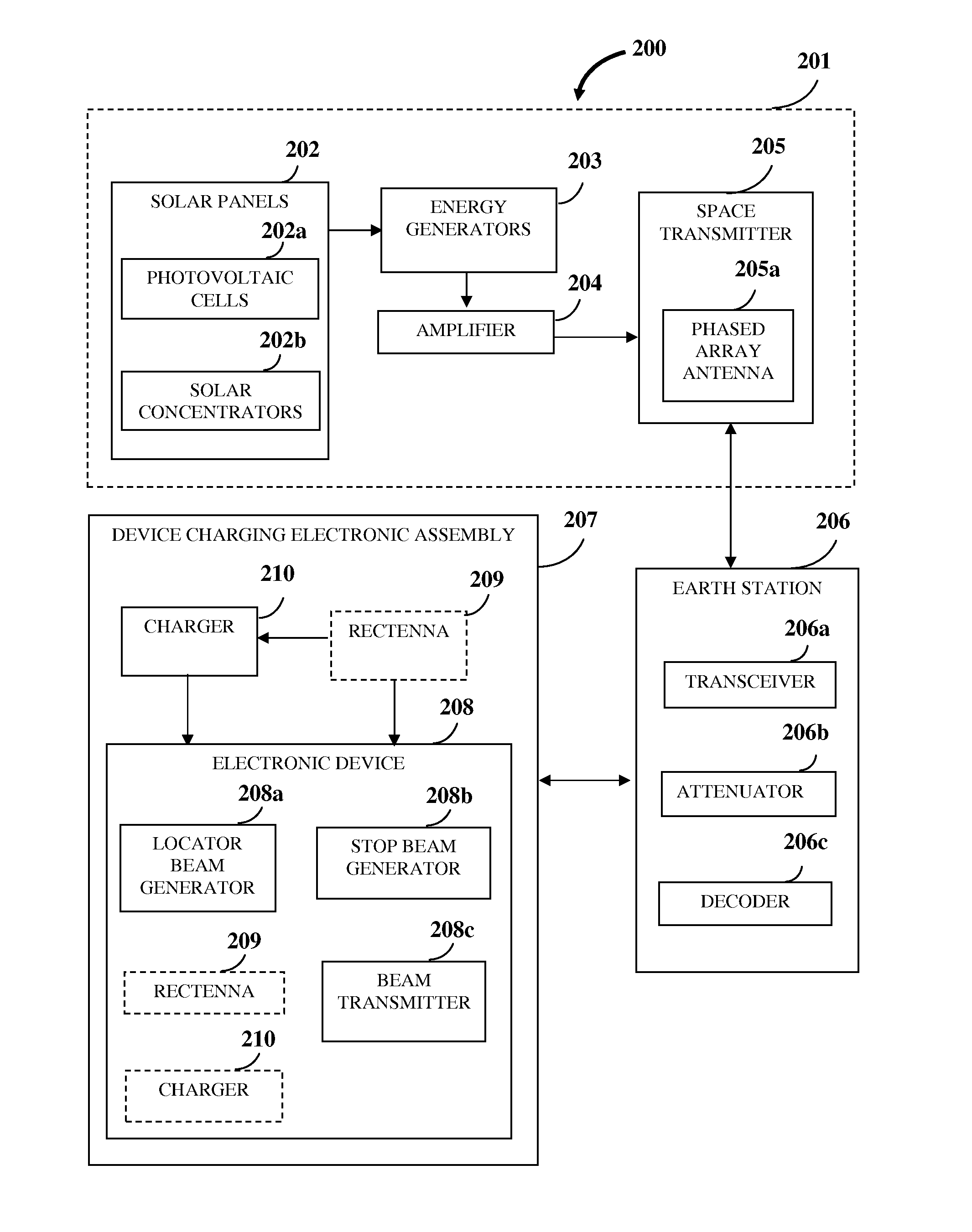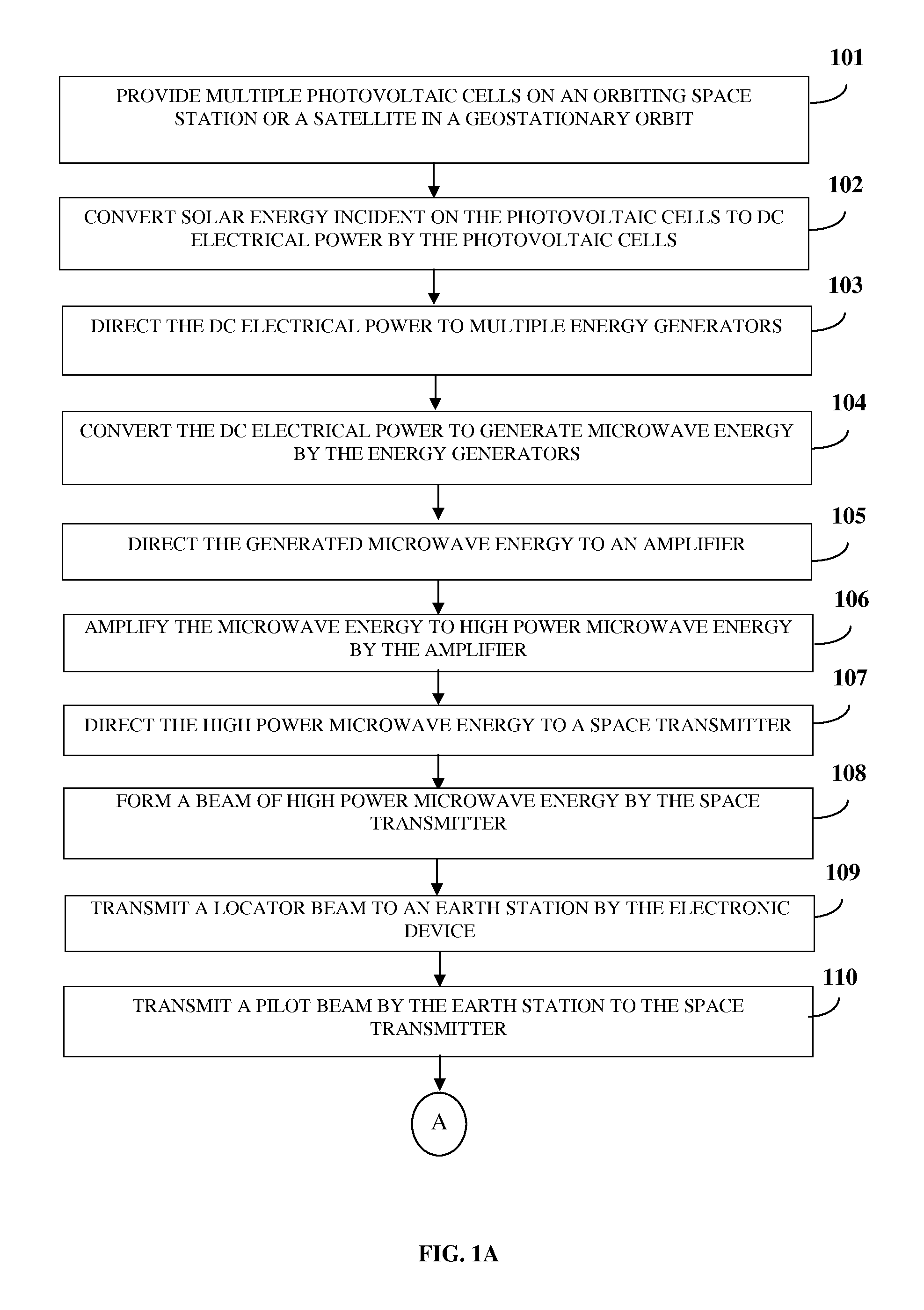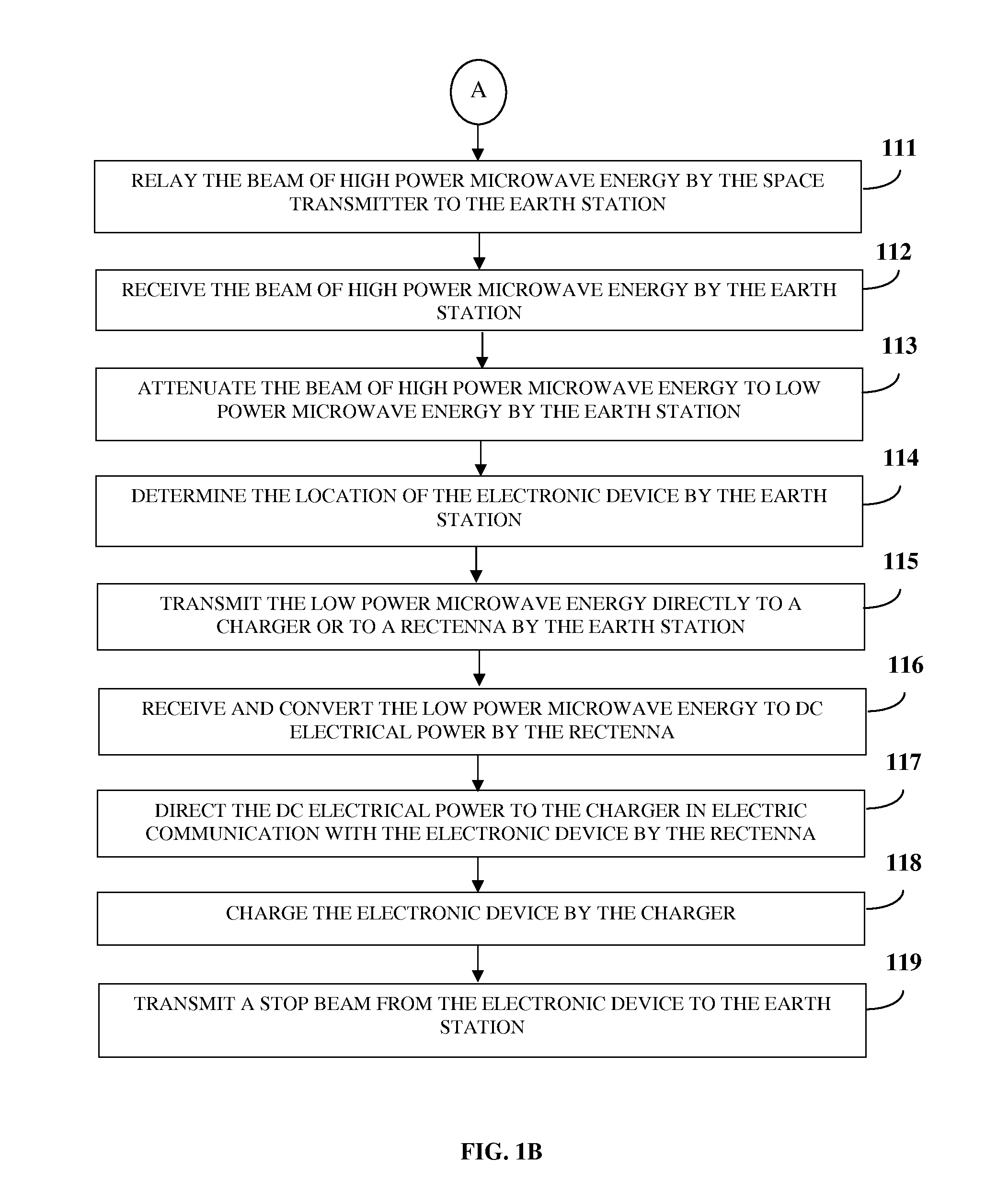Solar Powered Charging Of An Electronic Device
a technology of solar energy and electronic devices, applied in the field of solar energy-powered charging of electronic devices, can solve the problems of power outages, “blackouts”, generation of electrical power through non-renewable sources, unresolved needs, etc., and achieve the effect of enabling transmission of energy waves over large distances
- Summary
- Abstract
- Description
- Claims
- Application Information
AI Technical Summary
Benefits of technology
Problems solved by technology
Method used
Image
Examples
Embodiment Construction
[0022]FIGS. 1A-1B exemplarily illustrate a method for solar powered charging of an electronic device. As used herein, the term “electronic device” refers to any chargeable device, for example, a cell phone, a laptop computer, a tablet computer, a personal digital assistant (PDA), a music player, a calculator, a pager, etc. The method disclosed herein provides 101 multiple photovoltaic cells on an orbiting space station, or a satellite in a geostationary orbit. The photovoltaic cells use semiconductor cells, for example, silicon, gallium arsenide, etc., to convert 102 solar energy incident on the photovoltaic cells to direct current (DC) electrical power, which is well known in the art. The geostationary orbit is a geosynchronous orbit directly above the earth's equator, with a period equal to the earth's rotational period and an orbit eccentricity of approximately zero.
[0023]In an embodiment, multiple solar concentrators are provided on the photovoltaic cells for concentrating the s...
PUM
 Login to View More
Login to View More Abstract
Description
Claims
Application Information
 Login to View More
Login to View More - R&D
- Intellectual Property
- Life Sciences
- Materials
- Tech Scout
- Unparalleled Data Quality
- Higher Quality Content
- 60% Fewer Hallucinations
Browse by: Latest US Patents, China's latest patents, Technical Efficacy Thesaurus, Application Domain, Technology Topic, Popular Technical Reports.
© 2025 PatSnap. All rights reserved.Legal|Privacy policy|Modern Slavery Act Transparency Statement|Sitemap|About US| Contact US: help@patsnap.com



